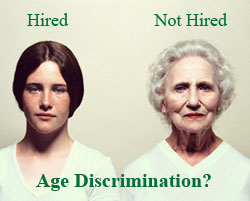Employment Law Part 1

This is a three part series covering employment law. Part 1 covers sexual harassment in or outside the workplace, and employment discrimination. Both of these topics are quite vast and this article touches on just the surface of these subjects. Remember, that, if you feel you are the victim of sexual harassment, or discrimination, to contact an experienced attorney that practices employment law.
So where does one begin? Some people try to understand the law on their own and fight their own case. It has been said that, people representing themselves in a court of law have both a fool for a client, and a fool for an attorney. Trying to interpret employment law and use it against an experienced attorney in a court of law will almost guarantee you a loss. Whereas, you may have a valid and winnable case, by attempting to represent yourself, you will jeopardize your chance of winning because you will be no match for someone that has years of employment law experience.
The best thing you can do is to call an attorney that specializes in employment law, and understands how to apply the law. And in cases of wrongful termination, most attorneys and employment lawyers will represent you with no upfront cost, so there really is no excuse not to seek the professional advice of an experienced employment attorney that has the knowledge and know how to properly represent you and look out for your own best interests.
Understanding Employment Law
Understanding employment law is an art unto itself. It is complex and difficult to maneuver the legal waters when trying to, not only understand employment law, but also applying the knowledge of that law in a real world setting, like a courtroom.
If you have been terminated from a company as an example, and you feel that termination was unjustified, doesn’t always mean you have a case to sue the employer that terminated you. That’s where understanding employment law is not only helpful, but also essential.
Employment law covers a wide range of legal topics and definitions. There are laws covering wage and hourly pay minimums, overtime, sexual harassment, discrimination, whistleblowing, wrongful dismissal or wrongful termination, and workplace safety laws.
Sexual Harassment

To begin with, what constitutes sexual harassment in the workplace?
Some of the answers are obvious, like unwanted inappropriate touching, or advances. Asking a female co-worker out that clearly has no interest, yet the fellow employee continues with his unwelcomed advances. But it can also be jokes or remakes that are sexual in nature that persons of the opposite sex find offensive. And such playing around in a work environment is unacceptable in any case.
Sexual harassment can also be a lot more direct, where a boss or supervisor blatantly asks for sexual favors in return for more pay, better position, or advancement. But, there does not have to be any offer in compromise stated, other than the sexual favor. And sexual harassment can come from people of the same sex as well. It is not limited between parties of the opposite gender.
And here’s where the interpretation of laws come into play. Let’s say a woman is claiming inappropriate touching. Is a handshake inappropriate touching? In the legal sense of the word, no, it would not be considered inappropriate touching. But what if the handshake is more than a simple gesture, where the man in this example goes out of his way to shake her hand, where she can clearly see this man is interested in her as more than just a fellow co-worker.
In this instance, here’s where documentation comes into play. Is this co-worker going out of his way to shake everyone’s hand? Or does he just single out one person? Do fellow co-workers notice this? How long has this been happening? Did the woman bring this up to her supervisor? What was the outcome? Etc.
What if the male in this example is the boss? Who can she talk to now? If the woman were driven to leave her job, would this be considered a forced termination?
All of these questions need to be investigated to find the meaningful answers and then correctly interpreted by the law to determine if there is a case.
Let us look at another example. Let’s say a female worker must deal with an outside vendor of the company, and this vendor is making unwanted advances or inappropriate touching. Again, here’s where documentation plays an important role.
If she reports this to her supervisor and nothing is done about it, this employee may have a really strong case against her employer for continuing to put her in an uncomfortable position of sexual harassment.
Now let’s take a look at wages laws and the minimums set by the federal government. It is mandatory for employers to pay a minimum wage to compensate employees for their time worked. And then there are mandatory pay wages for an employee working overtime. Typically, this would be any hours worked over a 40-hour workweek. Furthermore, employers must legally give their employees time off and breaks during their work shift. If you find yourself in this position, then you have an avenue to take legal action to be fairly compensated.
But what about salaried employees, are they entitled to overtime pay? In most cases, the answer is, yes. Many employers mistakenly think that just because they pay someone a salary, they are not mandated to pay overtime. And in some cases that’s true. For example, railroad workers, truck drivers, or a domestic live-in employee are exempt from overtime pay if they are salaried.
Let’s look at this example. If you’re earning $23,600, or less per year, then you are entitled to overtime compensation from your employer as stated by federal law.
If you applied for overtime pay and you did not receive it, you have a case against your employer. Even if you didn’t ask for the overtime pay, the employer is obligated on his own to recognize that overtime pay is do to you, and to pay it without being asked.
However, If you receive a salary, and if you are a supervisor of 2 or more people under you, and if you hold a management position that is your main job, and also if you have valid position where you have a voice and the authority to participate in the actual hiring process, as well as who gets promoted or terminated, then you’re exempt from overtime payment.
These exemptions extend to people working in what is termed a “learned profession.” A learned profession would include people like: dentists, lawyers and attorneys, teachers, engineers, registered nurses, pharmacists, etc. People working in a learned profession typically have some sort of an advanced degree, but, not in every case.
Consulting with an experienced employment attorney can tell you what is considered a learned profession or not.
But there are other professions that are also exempt, like: writers, composers, actors, and various artisans, and, they don’t even need to be salaried to be exempt, but again, it is not always a solid rule of thumb.
Let’s say you work for a company that produces porcelain figurines, and you work as a painter painting these figurines. Painting on their clothes, face, etc. In this instance, you are entitled to overtime pay if you are hired on as a hourly, or even a salaried position. So the defining lines of who’s exempt and who isn’t always crystal clear.
To illustrate those fine lines and grey areas, here’s a closer example. If you work within an area where you have the autonomy to make independent decisions and/or judgments on issues that are considered important or significant to your company, say you are the boss’s personal assistant, you may be exempt from overtime compensation.
Many times, employees are very aware that overtime payment is due them, yet they may be afraid of losing their jobs by bringing up the matter to their boss or supervisor. What can an employee do, and is there a law in place to protect them?
People are fired from their jobs everyday be vindictive employers that resent the fact that you bring up overtime pay to them. So the threat of being unfairly fired, or demoted in your position, or a decrease in your hourly or salaried pay is very real. It happens more often than people even realize. But the laws are very clear on this point, but what the outcome is has a lot to do with how an employee goes about it.
Before setting out to collect overtime pay, the first thing you should know is, are you in the right? If you know you’re in the right to ask for your overtime pay, then that’s when you need to start documenting all the details, including up to the point you asked for your overtime pay, and what the result was. In fact, when asking for overtime pay, don’t do it verbally, but put it in writing. This is another form of documentation and leaves the employers without the excuse that you never asked for it.
And since we’re on this topic, whistleblowing is probably the next best topic to segue into.
So what exactly is whistleblowing? Whistleblowing is letting the public or governing authorities know when a company is doing something it isn’t supposed to, like not paying overtime wages, dumping waste or doing something harmful to the environment, violating safety laws, also known as OSHA laws, misuse of power or malfeasance. And a whistleblower is the person letting the “cat out of the bag”, as it were. In essence, the person doing the telling on a company or group that is up to no good.
There was a time when blowing the whistle on a business or company meant a sure way to early termination, and in some extreme case, severe harassment. Most people are aware of a movie called Erin Brockovich. She’s the woman that blew the whistle onPacific Gas and Electric Company (PG&E) of California in 1993 for contaminating ground water.
So the short answer to the question is, yes, there are laws in place to protect a whistleblower. In fact, a company trying to harass, demote, threaten or terminate an employee for blowing the whistle on them will probably only result in getting the company into more trouble and being litigated against. In most cases today, a company usually consults with their attorney and does an out of court settlement to keep things quiet and to minimize the damage and expense to their company.
But, that is not always the case. So if you find yourself in apposition where you’re about to blow the whistle on a company, business or other group, you would be better advised to contact an employment attorney first to find out all you need to know before jumping out the door without a parachute.
Employment discrimination is another one of this heading that has a multitude of subheading and topics. For example there is age discrimination, sex discrimination, race discrimination, disability discrimination, health discrimination, religious discrimination, political discrimination, equal pay discrimination, national origin discrimination, and even pregnancy discrimination
So let’s take a look at these individually.
Age Discrimination

Age discrimination is when a person is not hired, or is demoted, or does not receive equal pay, fringes benefits or bonuses, or is fired or laid-off because of their age. Since we’re really not talking about someone that is too young to get a job, we will focus on people that are older than the age of 18.
There is an employment act called the “Age Discrimination in Employment Act”, or the ADEA. The ADEA was created to protect people ages 40 and above
And the law also protects people ages 40 and above from even being harassed in the workplace. Harassment can come from bosses, supervisors and even fellow employees and can include offensive remarks about a person’s age and when it becomes so frequent or severe that it creates a hostile work environment.
But the person doing the harassing, or making the offensive remarks can also be a client, customer, or even a vendor of the employer.
Even company policy and procedures that make it difficult or impossible for someone aged 40 or above to properly do their jib can be considered age discrimination.
Disability discrimination

Disability discrimination can occur when a person with a disability is not hired for a position that can clearly be done with someone of their disability, or if they are passed up for promotion, demoted, passed over for a raise, denied common benefits and fringe benefits, is laid-off, denial of insurance coverage by an employer, or terminated because of their disability.
Even a person with cancer or other treatable disease or mental health issue where that person is treated less than an employee without an illness, is consider protected under the law. In fact, the law is very clear in its legal language of employees with disabilities and must maintain ease of access to a work place, restrooms that can accommodate people in wheelchairs, and other devise that help them to move around, or to properly do their jobs.
The law cannot force a company to accommodate a disabled person simply because that person wants a job if it will cause that company undue hardship and expenses. It will depend on a few things depends on a few factors, like; the size of the company, financial resources, etc.
The law even extends to people in a relationship with a disabled person. An example would be where an employer’s discriminates against an applicant of employee because they are married to a person with a disability.
Harassing an employee or applicant because of a disability is illegal, or even had a disability in the past, or is even believed to have a disability, be it of a physical or mental nature, that is not short lived or transient.
Harassment to a disabled person can take many forms, such as; verbal or written teasing, making an offending remark that involve their disability, or their ability to do their job and happens with such frequency that it creates an unhappy, or hostile work environment, or precludes the disabled person from adequately performing their job duties.
As in the many examples above regarding employment law, the harassment can come from a supervisor, boss, owners of a company, fellow employee, or a vendor, client or even customer of the business.
What the law does not accommodate is for an employee that cares for a disabled family member or friend, there are instances where an employee can take a leave of absence to care for a disabled family member. It’s called the “Family and Medical Leave Act.”
And not everyone with a disability or medical condition is is protected under the law. To begin with, in order to be protected, a disabled person applying for employment must be qualified to perform the duties of the job.
So, what is the definition of a disability? A person is defined as being disabled if; they have a physical condition, or a mental condition that considerably restricts a person from walking, or seeing correctly, or has a hearing problem, or can’t talk, or even has a learning disability like ADHD, retardation, autistic, dyslectic, or other disorder of disease that prevents them from learning as quickly or as easily as a person without one of these disorders.
A person can also be considered disabled if that can show a history or background of a disability, like cancer, but it has to be in remission.
Someone may even be considered disabled if they are believed or suspected to have a physical or mental disorder that is not transitory in nature.
There are also stringent laws in place that limit employers asking an applicant for a medical exam, or even to answer certain medical questions regarding a physical or mental disability.
For example, if an employer wants to extend to you a job offer contingent on you passing a medical exam, or answering medical questions. Nor can they ask if you are a disabled person. All they can really ask is if you are able to perform the tasks necessary to do the job.
However, after the job has been offered, an employer can condition the offer on what an applicant answers regarding some medical questions, and even passing a medical examination, but, all other new employee hires must be asked the same questions, or take the same exams.
Only after a person is hired and has begun working can an employer ask certain medical question if they need to document support for accommodation for a disabled person.
Race Discrimination

While there’s many ways a person can be discriminated based on their race, such as being denied a loan for a car or house, or being denied access to services or goods. These types of discrimination can also be fought and won in a court of law, but for the purpose of this article, we will focus strictly on employment discrimination.
Race discrimination occurs when an applicant is denied employment for a job they are applying for based on their skin color, ethnic facial features or hair type, or other character distinctions associated with race.
Discrimination can also occur when a person is denied employment because they are married to a person of a different race from them, or if they are involved with, or belong to a group or club with a group of a certain race usually associate with color or ethnic heritage. And race discrimination can even occur between a person being disseminated against, and the person doing the discrimination who are of the same race.
The law prohibits discrimination to employment based on a person’s color or ethnic makeup.
It is illegal to harass a person in a work environment by using racial insults, jokes, or disparaging remarks about a person’s race, color, or other ethnically distinctive features. When this type of harassment occurs with such frequency, or if it is so severe that it makes the workplace a hostile environment, it has become an legal issue.
Pregnancy Discrimination

Pregnancy discrimination occurs when a woman, either an applicant for a job, or a current employee, is treated negatively because she is pregnant, experienced childbirth, or is being treated for an issue related to her pregnancy.
The pregnancy discrimination act (PDA) prohibits any discrimination based on pregnancy involving hiring, promotions, benefits, job placement, training or other benefits.
If a woman experiences a temporary medical issue where she is unable to perform her job duties due to her pregnancy, her employer must afford her the same rights extended to any other employee that is disabled.
In addition injuries or complication that are a direct result of a pregnancy can and may also be considered a disability may be covered under the disabilities act (ADA),
And an employer may have to afford you a leave of absents, or some way to accommodate you in order for you to perform you job duties.
For more ADA info
It is against the law to harass a woman because she is pregnant, in childbirth, or is suffering from a condition caused by her pregnancy. Harassment can be offensive comments or jokes that are so severe that it has created an uncomfortable or hostile place to work, or to the point that the woman being harassed cannot perform her job.
In addition to family leave for a new mother or father, anyone who has adopted a child or is the guardian of a foster child must be afforded the same amount of leave, 12 weeks, with or without pay, which is the choice of the employer.



